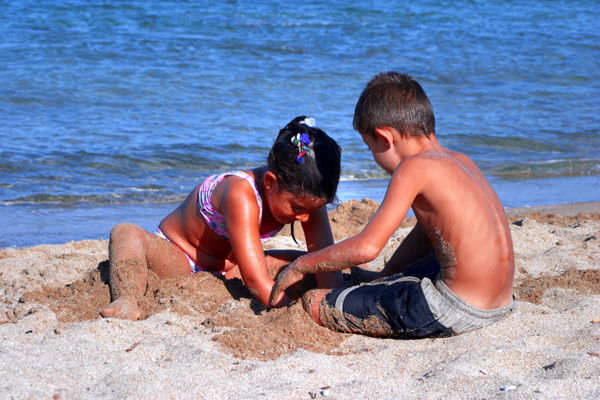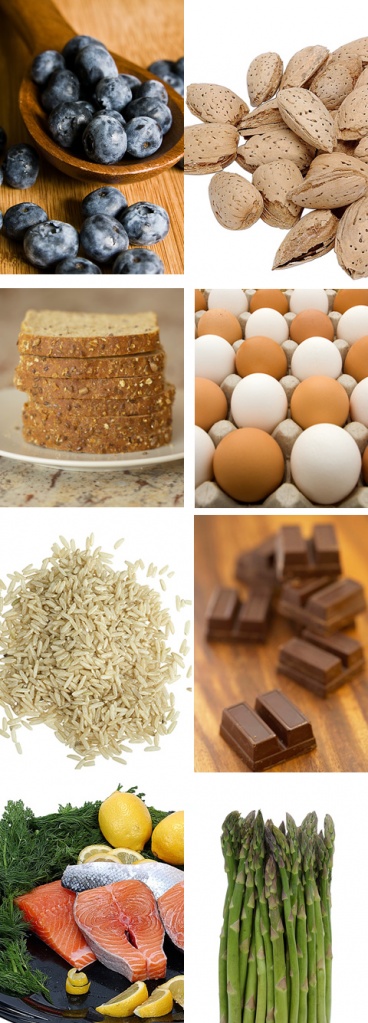Share This
Summer’s not over yet! And, in many places, August is the peak month for beach-going – a time for slinging sunglasses, umbrellas, and sunblocks in our beach bags. But when we’re packing up all our gear, do we ever think about sun-protection from the inside out? An 8-year community-based study in Australia that I just read this season suggests that we may be able to help protect our skin from sun damage by the foods we eat! Antioxidant nutrients, such as beta carotene and flavonoids, have been shown to help prevent skin damage caused by the sun’s UV-rays. In this study of 485 adults, researchers found that those with more antioxidants in their blood had lower occurrences of skin cancer. Foods like almonds, blueberries, and dark chocolate are primo antioxidant ushers, and they’re perfect snack foods when you’re on the sand! They found that out of all the other nutrients, high serum levels of selenium offered the most potential protection, decreasing skin cancer risk by almost 60%! Whole grain cereals, whole wheat bread, and brown rice are three of nature’s top food sources of selenium. A cup of brown rice alone provides 27.3% of the daily recommendation! Other selenium-rich foods are brazil nuts, seafood, and sunflower seeds. To give you a better picture of how easy it is to keep your selenium levels up with some of your favorite foods, the recommended daily amount of selenium is 40-70mcg (micrograms) for men and 45-55mcg for women. At breakfast, a 2-egg omelet stuffed with ½ cup of portobello mushrooms and two slices of whole wheat toast will give you 70mcg of selenium; at dinner, three ounces of salmon, ¾ of a cup of Kamut and 6 asparagus stalks will provide 72mcg. (I’d like to credit Cindy for brilliantly whipping up these selenium-rich dishes!) Moderate sun exposure has been shown to benefit Vitamin D levels, bone health, metabolism, and even mood; but, we do need to be careful and protect our skin from sunburns and other damage. Enjoying sun in its off-peak hours, using an SPF 15 or higher sunblock, and covering up with hats and shirts are great ways to avoid over-exposure. And, now we can add to the list the food on our plates! If you’re interested in the science behind healthy food, we have a whole chest of scientific studies about the Mediterranean Diet on the Oldways website. And we regularly post new whole grain health studies on the Whole Grains Council website, where you can easily review them. Happy reading, eating and beaching! — Sarah



Add a Comment